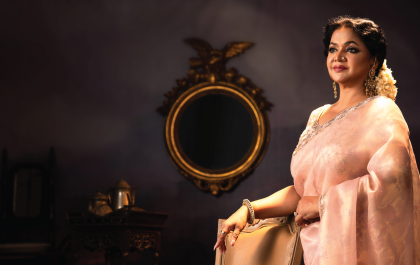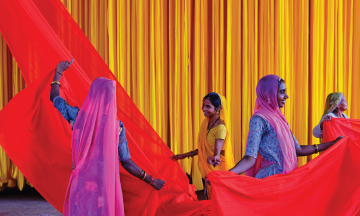By Zora Mohsin
Sabrina Fatma Ahmad and Anjum N. Choudhury unravel their secrets on weaving micro-tales
The last day of the Dhaka Lit Fest 2023 was by no means lacking in the charm it’s known for. Lovers of literature and the arts flocked to get to their panels of choice on the cold winter morning, with the air buzzing with ideas.
While many rushed to grab seats for a session headlined by an internationally acclaimed author, some were lucky to stumble upon the magic that was about to be created in the Cosmic Tent.
Together with Sabrina Fatma Ahmad, author and creator of the book and movement that is Sehri Tales and Deputy Editor at Man’s World Bangladesh; and Anjum N. Choudhury, author of the fantasy novella Divining Thread, a session titled “Micro Tales” took off.
In the cozy tent, with a humble but eager audience, the (what would end up becoming) interactive discussion was an intimate affair that left all in attendance with a lot more fervor to create than when we started.
The brilliant writers touched upon a number of topics that make their writing come alive.
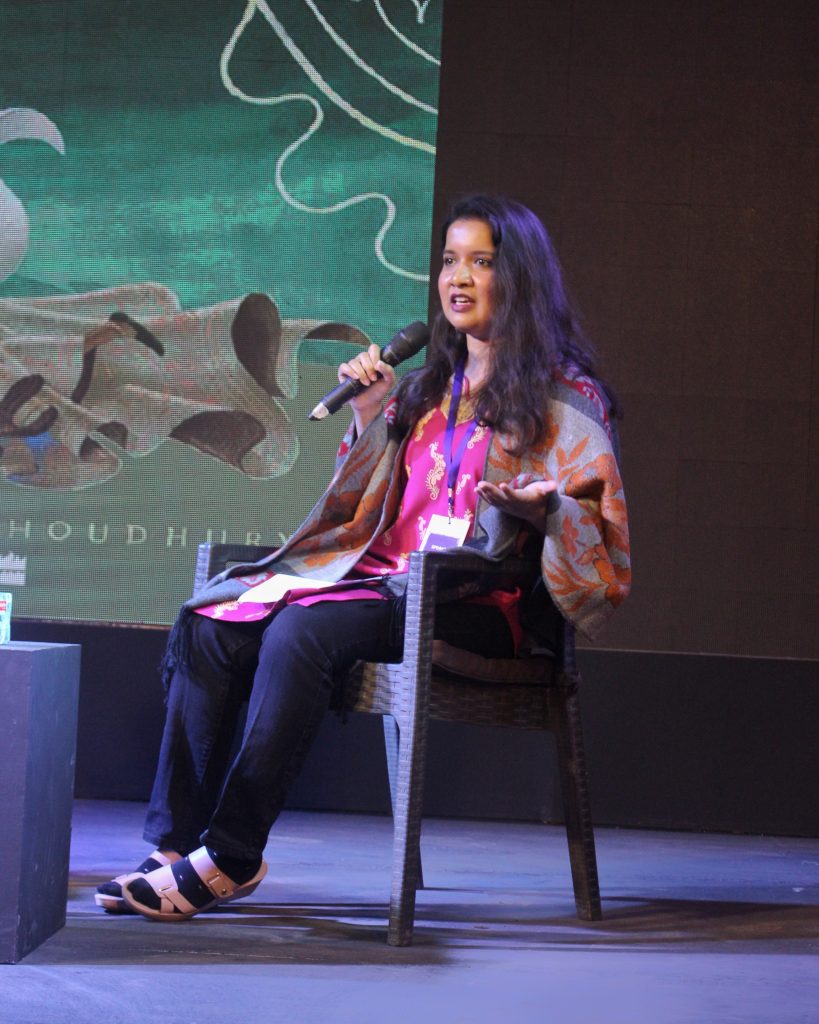
WHERE THE ‘DIVINING THREAD’ TAKES YOU
Anjum broke down her journey of crafting Divining Thread, which started off as a short story, but was expanded into a novella when an editor rejected Anjum’s submission, stating that the character’s story didn’t feel complete.
Anjum recalls writing retellings of famous fairy tales we all grew up reading, in hopes of creating fantasy stories that she felt represented in.
“The thing about fairy tales is that they’re all about morality. One trope kept popping up that really bothered me – the self-sacrificing girl is virtuous and thus deserves the prince, while the materialistic girl who likes nice things does not deserve the prince. Meanwhile, nobody is holding the prince accountable.”
This birthed the idea for Divining Thread. In order to make the story her own, Anjum pondered, “Who do I want to be when I grow up?”, which allowed the protagonist’s character and journey to slowly unravel.
Anjum also shared how elements of her nomadic childhood shaped the world she created in the book, with her Bengali heritage and time in Nepal molding the framework for the setting.
The author believes that writing is a lonely process, and the characters a writer designs become companions on the journey. With a novella under her belt and a sequel already awaiting the green light, Anjum says she is ready to enter the novel sphere. She enjoys watching her characters grow and relationships develop in longer texts, which she says is “one of the joys of fiction”. At the same time, the writer says she has a lot of respect for short story writers, who are able to create an impact within digestible word counts.
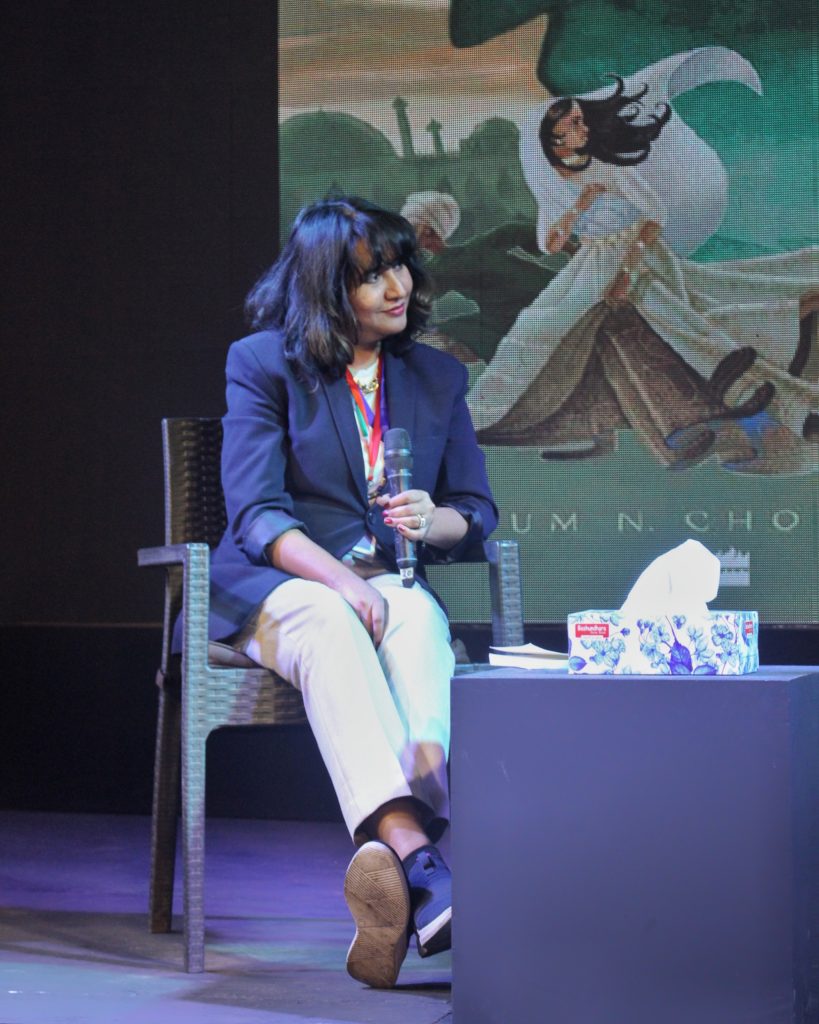
A LIFETIME PACKED IN A TINY TALE
Sabrina has an affinity towards bite-sized stories – and that is a field she has mastered, exhibited in (but certainly not limited to) her book Sehri Tales, which developed from her personal journey of crafting micro-tales during sehri time, which soon became a revered movement for reader-writer communities across the country.
It all started one day, on the first night of Ramadan in 2016, when Sabrina woke up for sehri and began missing her father, reminiscing the times when he would leave notes for the family to read when they woke up for the midnight meal during Ramadan. Having designed micro-fiction challenges for others in the past, Sabrina decided to begin a fun exercise for herself, and ended up with a whole body of short tales for each day of the month.
After four years of not being able to write anything for herself, due to a little hiccup called life, this exercise proved to be just what Sabrina needed to get back into the groove of storytelling.
What appeals to her is finding where the capsize point of a story takes her. A capsize point, she says, is the point in a story where a single decision can change its trajectory. Sabrina likes to pour her ideas out on paper, and then strip it down to the very essence of the story, ready to be sent out to the world.
“For me, the joy is in the cutting of it. Have I ever regretted cutting it down? No. Because whatever ends up on the floor becomes interior for another story.”
To demonstrate how an idea, or a capsize point acting as a prompt, can help build the skeleton for a solid story, Sabrina kicked off the next part of the session, allowing the voices from the audience to partake in an exciting storytelling activity.
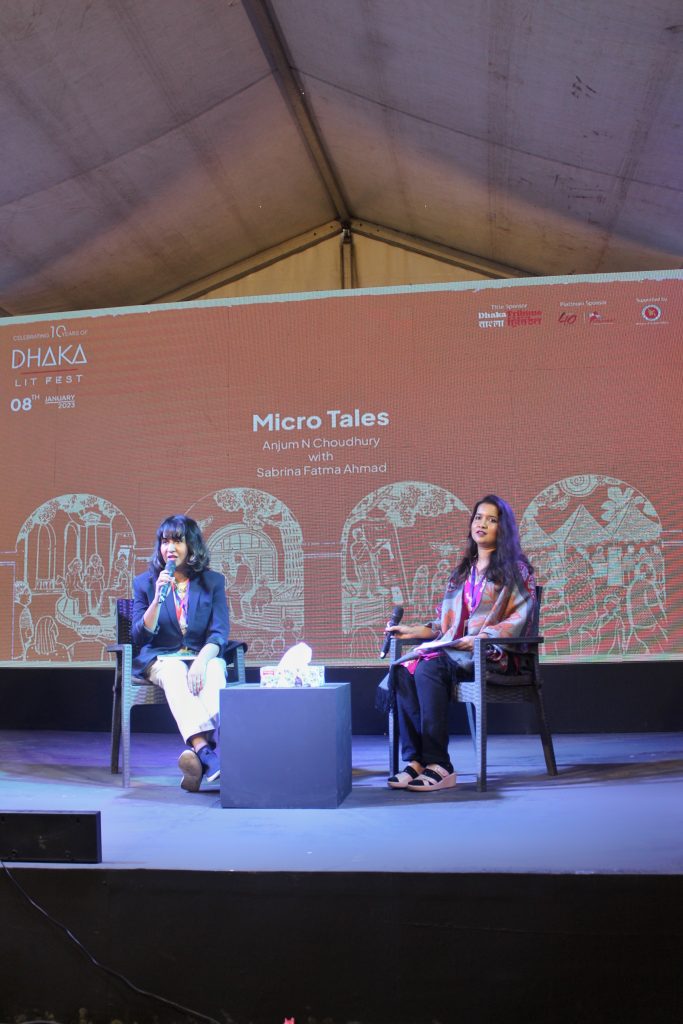
WITH A LITTLE HELP FROM MY FRIENDS
Prompt: Every night, you hear loud sounds coming from next door. It sounds like something really awful is going on. You’ve tried to politely inquire about it, but you’ve been rebuffed. Do you complain to the authorities?
Whatever decision you take will inform your story.
Person A takes an ethical route: “I will report it to the authorities; I think that’s the right thing to do. If no one speaks up, the violence could go on forever.”
Person B thinks this could be a good horror story: “You go knock on your neighbour’s door with the authorities, but the noises have stopped and no one is answering. You’re worried that what you heard could be something more mysterious than the abuse you thought it was. Once you break down the door and walk in, you realize that the noises were coming from beyond a wall.”
Sabrina chimes in, turning the tables to land on a fantasy plot: “You touch the wall to find out that it’s not a wall at all, but a portal. You walk through the portal, and now we’re not in Texas anymore.”
Where are we? The plot thickens with Person C’s twist: “You’ve walked through the portal and are shocked to find another world on the other side. Just then, the cop who’s with you pulls out his gun and says, ‘I’m sorry sir, but I cannot let you tell anyone about this.’”
Anjum adds a hint of representation to the whimsy: “The cop escorts you through the portal to a dhaba in the alternate universe, which is a meeting spot for all ‘Questionable Alternate Dimension Beings’.”
Person A hops back in with a side detail that we missed: “The cop was trying to take you to the dhaba, but another constable from behind insists that you don’t go in. Instead, he points at a collection of large bookshelves on the side, and they try to figure out what that could be.”
Where does this story go? There’s no idea that’s too crazy; we’ve just traversed into an alternate universe which has a dhaba. Person D wraps it up on an even more mysterious note: “You take out a book, and the bookshelf opens.”
The invigorating segment ended with cheers and applause, bringing a very lively and equally inspiring session to a close.
IN SUM AND SUBSTANCE
- Writing does not need to be a lonely process. In collaborating with other creatives around you, you can find tales that take unexpected turns.
- Let the story and your characters take you where you need to go. Oftentimes, you may not end up where you thought you would – and that’s okay. The organic flow of events is what makes for a really good story.
- There is no rule set in stone for how long – or short – your stories need to be. Write what you want to say, but stay true to it. If the essence comes through, you have succeeded.
- Not everything you write has to be for others to see. Keep writing for yourself, and eventually that will build a stronger foundation for what you want to put out for the world.
- What field you work/study in does not determine your worth as a creator. Anyone can write – art is just a collection of human emotions and experiences that shape the world. Don’t let your day job force you to shy away from the creative voice inside you.
Much like all other discussions at the Dhaka Lit Fest, there was a lot to learn from this one-hour session. But the biggest takeaway, perhaps, is that the best stories can come out of the most unexpected places – if only you take the time to explore. The panelists, with their individual styles, and the diverse audience came together in a perfect blend of ideas and imagination.
And what is art, really, if not a culmination of the elements around us coming together in perfect harmony?
Zora Mohsin is an Editorial Assistant at Dhaka Tribune.
Photos: Tarin Fatema





